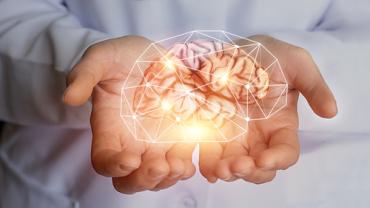
Creatine is a naturally occurring nutrient that forms an energy reserve in the muscles and brain. It is consumed in the diet (found only in animal foods) and synthesized in the liver, pancreas, and kidneys. Creatine supplementation can increase tissue concentrations to a level that is unobtainable through the diet alone, and its benefits on sports performance and increasing muscle creatine levels are well known.
In a review published last Tuesday, researchers explain the benefits of creatine supplementation on brain creatine levels and its effect on cognitive processing and traumatic brain injury.
Compared to skeletal muscle, only a small percentage of creatine is in the brain; however, the brain is highly metabolically active and creatine is essential for energy production. It appears that brain creatine increases with supplementation, and that higher dosing and prolonged supplementation are required for this application compared to what is used to increase muscle creatine. Creatine supplementation increases cerebral phosphorylcreatine, which reduces metabolic demand and enhances neural activity in the brain.
The research suggests that creatine is most beneficial in individuals whose cognitive processes are stressed, such as in sleep deprivation, hypoxia, or during cognitively demanding tasks. In addition, increasing brain creatine may be effective at reducing the severity or improving the recovery from traumatic brain injury (TBI). Limited data is available with TBI in humans, but two trials show improvements in cognition, communication, self-care, personality, improved behavior, reductions in headaches, dizziness, and fatigue in patients with TBI. Brain creatine levels are also chronically suppressed in depression, schizophrenia, panic disorders, and mild traumatic brain injury (mTBI).
By Michael Jurgelewicz, DC, DACBN, DCBCN, CNS